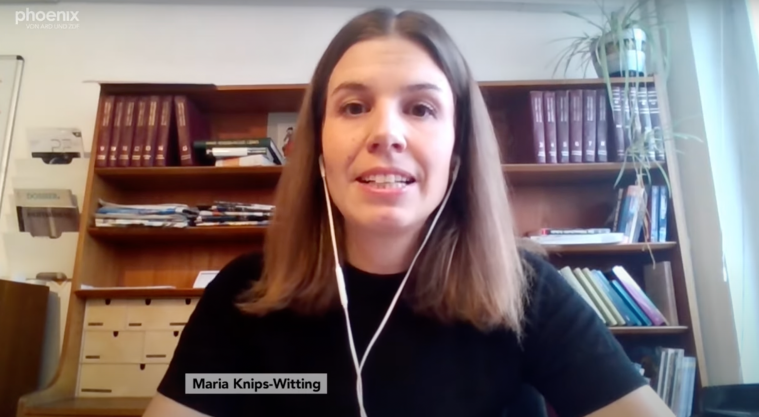Berlin, June 14, 2024—The Committee to Protect Journalists denounces the expulsion of Austrian journalist Maria Knips-Witting from Russia and calls on the country’s authorities to immediately reinstate the journalist’s credentials and cease turning journalists into political pawns.
Russian authorities revoked the accreditation of Knips-Witting, a journalist with the Moscow bureau of public broadcaster Austrian Radio and Television (ORF), on Monday, June 10. In a Monday statement, the Russian Foreign Ministry said Knips-Witting, who had been reporting from Moscow since January, was ordered to surrender her accreditation and leave Russia immediately.
Russian Foreign Ministry spokesperson Maria Zakharova said Knips-Witting’s expulsion was a response to Austrian authorities’ expulsion of Ivan Popov, a Vienna-based correspondent of the Russian state news agency TASS.
“The Kremlin’s openly tit-for-tat policy concerning Austrian journalist Maria Knips-Witting shows what little regard Russia holds for journalists,” said Gulnoza Said, CPJ’s Europe and Central Asia program coordinator, in New York. “Journalists should not be used as a tool to retaliate against another country when there are appropriate diplomatic avenues available. Russia should reinstate the credentials of Knips-Witting and allow her and other foreign journalists to report from Russia without fear of reprisal.”
The Austrian Foreign Ministry told CPJ that Knips-Witting’s expulsion “has no basis” and was “completely unjustified.” “This is yet another blatant attack on the freedom of the press in Russia,” the Austrian Foreign Ministry said in an emailed statement.
“ORF regrets the decision and cannot understand it,” the Austrian broadcaster said in a Tuesday statement, adding that it will take “all necessary steps to ensure that ORF audiences continue to receive independent and comprehensive reporting from Russia.”
The Austrian Interior Ministry confirmed to CPJ on June 16 that media accreditation for two Russian TASS correspondents was revoked in April “due to a negative security assessment by security authorities.” The Russian Foreign Ministry’s statement said that Austria revoked Popov’s accreditation in late April, forcing him to leave the country on June 7. The Austrian Interior Ministry told CPJ that the second correspondent was a female, but gave no further details on the revocation, only saying that “TASS is free to register new correspondents for accreditation, subject to a security check by the relevant domestic authority.”
“These are not some draconian methods,” Zakharova said on the Russian state-funded Sputnik radio, adding later in a social post: “If you touch our journalists, other foreign correspondents will be sent home too.”
In March, independent Austrian weekly Falter reported that Russian intelligence was surveilling politicians in Vienna under the guise of working as journalists for TASS. The report also mentioned an unnamed foreign correspondent, based in Vienna since 2023, as being closely affiliated with the Russian foreign intelligence service (SVR).
Zakharova said on Sputnik radio that about two weeks before the expulsion of Popov, the Austrian ambassador was summoned to the Russian Foreign Ministry to discuss Vienna’s move regarding Russian journalists, adding that there was no substantive response.
“He (Austrian diplomat Werner Almhofer) was asked to convey the following message to Vienna: leave Russian journalists alone, we do not want any exchanges, let the media representatives work normally. But Austria, naturally under pressure from the ‘big brother,’ decided otherwise,” Zakharova said on her Telegram channel.
In March, Russian authorities refused to renew the visa of Spanish journalist Xavier Colás, a Moscow-based correspondent of Spanish daily newspaper El Mundo, and gave him 24 hours to leave Russia after working in the country for 12 years.
Russia has a history of expelling foreign reporters, including The Guardian’s Luke Harding in 2011 and the BBC’s Sarah Rainsford and Tom Vennink of the Dutch daily de Volkskrant in 2021. Since the start of Ukraine’s full-scale invasion, Russian authorities have failed to renew the visas and accreditations of Finnish journalists Arja Paananen and Anna-Lena Laurén, and Dutch journalist Eva Hartog.
CPJ emailed the Russian Foreign Ministry requesting additional comment on both the TASS correspondents’ and Knips-Witting’s expulsions but received no immediate response.
Editor’s note: The seventh paragraph has been updated to add comment from the Austrian Interior Ministry.
